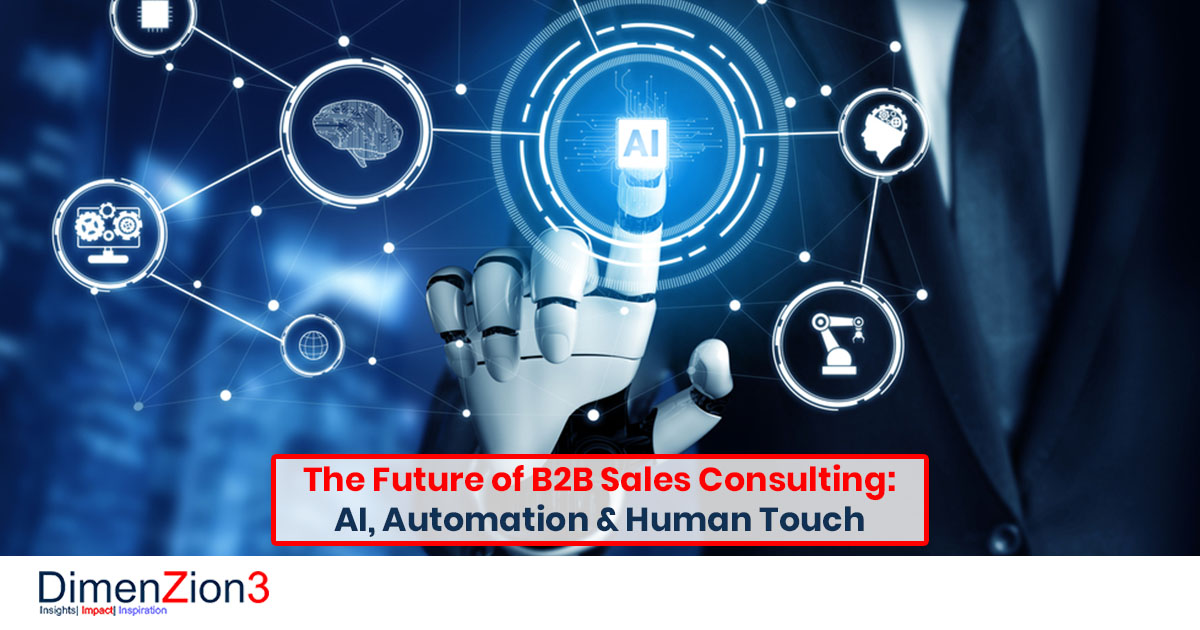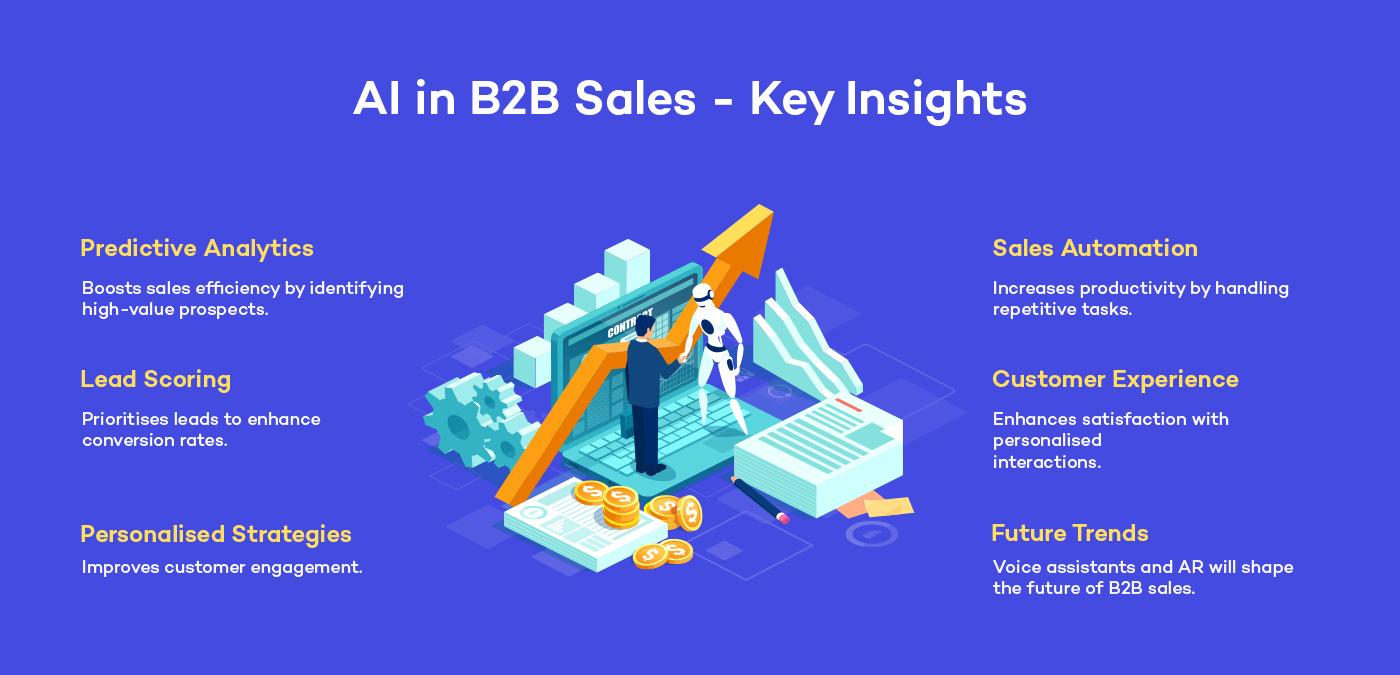Change Your Service: Exactly How AI Automation Is Transforming B2B Operations
AI automation is reshaping B2B procedures in substantial methods. Firms are adopting this innovation to simplify operations and improve effectiveness. As tasks become automated, services can focus on critical growth as opposed to ordinary processes. The ramifications of these modifications are profound, influencing every little thing from customer interactions to provide chain administration. Recognizing this makeover is vital, as the future of organization depend upon the effective combination of AI into day-to-day operations. What lies ahead in this advancing landscape?
Understanding AI Automation in B2B Context
As organizations significantly look for efficiency, recognizing AI automation within the B2B context ends up being essential. AI automation refers to the application of artificial intelligence technologies to enhance and enhance company processes. In B2B atmospheres, this can show up in numerous kinds, such as automating information access, optimizing supply chain logistics, or enhancing inventory administration. Organizations leveraging AI automation can minimize operational prices, decrease human mistake, and rise productivity. In addition, AI devices can assess vast quantities of data to give workable insights, allowing notified decision-making. Minarik AI. The assimilation of AI into B2B operations not just transforms traditional process yet likewise cultivates agility and scalability, permitting businesses to adjust to market changes swiftly and successfully. Embracing this innovation is crucial for remaining competitive in today's digital landscape
Enhancing Customer Experience With AI
Exactly how can AI change consumer communications in the B2B field? AI boosts consumer experience by supplying individualized, timely, and efficient service. Smart chatbots and virtual aides can deal with queries 24/7, making certain customers get instant reactions. Growth Systems For B2B. Anticipating analytics enable businesses to anticipate customer needs, tailoring offerings accordingly. AI-driven platforms can evaluate client data, enabling for targeted advertising and marketing approaches and improved interaction. Additionally, view evaluation tools examine consumer feedback, assisting organizations fine-tune their solutions. By automating regular jobs, AI liberates human resources to concentrate on high-value communications, fostering stronger relationships. The assimilation of AI not only improves communication however likewise builds count on and commitment, inevitably raising the general customer experience in the affordable B2B landscape

Streamlining Supply Chain Monitoring With AI
AI plays a vital role in enhancing supply chain monitoring via anticipating analytics and automated stock control. By leveraging predictive analytics, companies can anticipate need changes and change their operations accordingly. Automated stock systems better enhance effectiveness by guaranteeing supply degrees are kept, decreasing waste and boosting overall productivity.
Anticipating Analytics Advantages
While numerous businesses deal with challenges in taking care of complicated supply chains, predictive analytics supplies a transformative service by leveraging large amounts of information to anticipate patterns and maximize operations. By evaluating historic data along with real-time inputs, anticipating analytics enables firms to identify patterns and prepare for future demands. This insight enables more enlightened decision-making, enhancing performance and lowering costs. In enhancement, services can proactively address prospective disturbances by forecasting supply chain bottlenecks and changing strategies appropriately. The assimilation of anticipating analytics not just improves inventory management yet also cultivates more powerful connections with suppliers and customers through prompt reactions to market shifts. Inevitably, the adoption of anticipating analytics equips organizations to stay affordable in a progressively dynamic company environment.
Automated Inventory Control
As services progressively rely upon anticipating analytics to enhance supply chain operations, automated stock control emerges as an effective ally in this effort. By leveraging AI-driven technologies, firms can boost precision in stock monitoring, decrease stockouts, and decrease excess inventory. Automated systems examine real-time data, permitting organizations to anticipate need changes and change supply degrees as necessary. This not only improves order gratification but likewise enhances capital management by minimizing holding expenses. In addition, AI can identify patterns in buying habits, allowing more informed decision-making concerning provider relationships and purchase strategies. Eventually, automated stock control not only boosts functional efficiency yet additionally improves customer contentment by making certain item schedule, solidifying its duty as an essential part in contemporary supply chain management.
Data-Driven Choice Making Powered by AI
In today's competitive landscape, companies increasingly count on data-driven decision-making to boost operational performance and calculated planning. Fabricated intelligence plays a pivotal duty in this change by assessing huge amounts of information swiftly and properly. AI algorithms identify patterns, fads, and abnormalities that human analysts might forget, making it possible for businesses to make enlightened decisions based on real-time insights. This capacity permits companies to anticipate market changes, optimize resource appropriation, and tailor their offerings to client demands. Additionally, AI-driven analytics assist in risk evaluation and monitoring, making sure that organizations can browse unpredictabilities efficiently. By leveraging these innovative tools, businesses not just enhance their decision-making processes however additionally obtain a competitive advantage in their corresponding markets, fostering growth and advancement.
Automating Recurring Tasks to Boost Productivity

Integrating AI With Existing Company Procedures
When integrating AI with existing service procedures, lots of companies face obstacles. These difficulties usually originate from an absence of recognizing concerning how AI can match existing process. Effective assimilation calls for a comprehensive evaluation of existing operations to identify locations where AI can include worth. Organizations needs to likewise ensure that their teams are outfitted with the essential abilities to utilize AI devices properly. In addition, smooth integration pivots on the compatibility of AI modern technologies with heritage systems. Firms usually locate it valuable to take on a phased approach, piloting AI applications in specific divisions prior to a wider rollout. This technique enables adjustments based on initial feedback, assuring smoother shifts and making best use of the prospective benefits of AI automation in boosting productivity and efficiency.
Future Fads in AI Automation for B2B Companies
As B2B firms aim to the future, improved information analytics is readied to play an essential role in driving decision-making procedures. Intelligent procedure automation will additionally become an essential fad, boosting and improving procedures performance. These improvements promise to improve how organizations operate, inevitably resulting in more receptive and agile companies.
Improved Information Analytics
While companies increasingly rely upon data-driven decisions, the duty of AI in enhancing information analytics is ending up being much more important in B2B operations. AI technologies facilitate the collection and evaluation of substantial datasets, allowing business to uncover valuable insights that drive strategic preparation. Predictive analytics powered by AI enables companies to anticipate market fads and customer behavior with higher accuracy. In addition, artificial intelligence algorithms improve information interpretation, recognizing patterns that human analysts may neglect. This results in even more informed decision-making and optimized resource appropriation - Growth Systems For B2B. As B2B companies remain to welcome AI-driven analytics, they can anticipate better functional performance, enhanced client experiences, and an one-upmanship out there. The future of data analytics in B2B rests on integrating advanced AI capacities
Intelligent Process Automation
Smart Process Automation (IPA) is positioned to change B2B procedures by effortlessly incorporating AI technologies with typical company procedures. This cutting-edge approach incorporates robot process automation (RPA) with sophisticated AI capacities, allowing companies to boost efficiency and accuracy. Business can automate recurring tasks, such as data entrance and billing processing, enabling staff members to concentrate on tactical efforts. IPA additionally leverages artificial intelligence and natural language handling, boosting decision-making via real-time data analysis. As services progressively take on IPA, they can expect substantial expense decreases and enhanced consumer experiences. Future trends show a growing reliance on IPA for scalability and flexibility, positioning companies to prosper in an ever-evolving marketplace. Embracing IPA will certainly be necessary for maintaining competitiveness in the electronic age.
Frequently Asked Concerns
What Industries Benefit Many From AI Automation in B2B Workflow?
Manufacturing, logistics, finance, and health care markets profit most from AI automation in B2B procedures. These fields utilize automation to boost effectiveness, minimize expenses, improve processes, and improve decision-making via data-driven insights and anticipating analytics.
Exactly How Can Little Businesses Implement AI Automation Effectively?
Little companies can carry out AI automation successfully by recognizing recurring jobs, picking suitable tools, incorporating options gradually, educating personnel, and continuously analyzing efficiency to optimize procedures, making sure a smooth changeover and making the most of efficiency. AI Automation For B2B.
What Are the Prices Related To AI Automation Application?
The costs related to AI automation application normally consist of software application procurement, facilities upgrades, training personnel, ongoing maintenance, and potential assessment costs. These costs can differ substantially based on the scale and intricacy of the automation services picked.
How Do I Determine ROI From AI Automation Initiatives?
To measure ROI from AI automation efforts, one need to evaluate expense financial savings, productivity renovations, and income development against execution expenses. Tracking essential efficiency signs gradually supplies important insights into effectiveness and overall roi.
What Skills Are Required to Take Care Of AI Automation Projects?
Efficient monitoring of AI automation jobs calls for skills in task monitoring, data analysis, programs, and recognizing AI modern technologies. Additionally, strong communication, analytical capacities, and flexibility are essential for maneuvering the complexities of such initiatives.
As businesses increasingly seek efficiency, recognizing AI automation within the B2B context comes to be essential. The assimilation of AI right into B2B operations not only changes typical operations however likewise fosters agility and scalability, allowing companies to adapt to market modifications promptly and successfully. While services increasingly rely on data-driven choices, the function of AI in improving data analytics is becoming extra necessary in B2B procedures. Intelligent Refine Automation (IPA) is positioned to reinvent B2B operations by perfectly integrating AI technologies with typical organization processes. Reliable monitoring of AI automation tasks requires abilities in task monitoring, data analysis, programming, and understanding AI technologies.